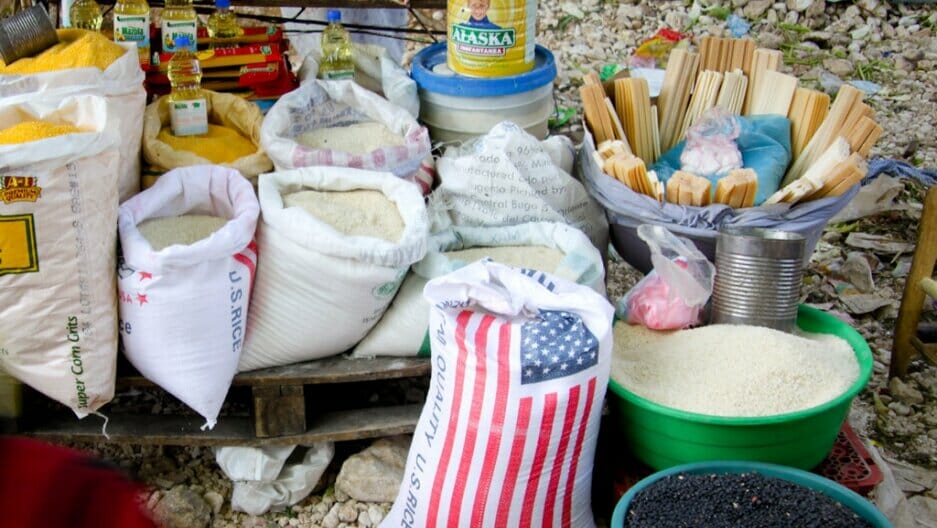Sacks of American rice for sale at a Port-au-Prince market. Credit: Jacob Kushner
The poor you will always have with you…”
Matthew 26:11a
As Christians we are commanded to be merciful and help those who are in need. This fact is not in question. But the real question is, what if our helping is actually hurting? I recently finished reading a very thought-provoking book entitled – When Helping Hurts: How to Alleviate Poverty without Hurting the Poor and Yourself. I was so impacted by this work that I purchased a copy for everyone on our Missions Leadership Team. If you have an interest in truly helping the poor, I highly recommend you get this resource and thoughtfully read through it and consider the issues raised.
Three Stages of Poverty Needs
One of the biggest problems when we try to assist the poor is recognizing the proper form of aid needed. In Chapter 4, authors Steve Corbett and Brian Fikkert draw a distinction between three stages of poverty needs: Relief, Rehabilitation, and Development. Right after a natural disaster occurs the need is clearly relief. People need food, water, and shelter. But if we are only providing Relief of food, water, and shelter five years after the disaster, we start to hurt the poor by keeping them trapped in a survival existence. The author describes Relief as “stopping the bleeding.” Relief work is done “to and for” those in great need.
When Money Doesn’t Fix the Problem
At some point the assistance should transition from Relief to Rehabilitation. When we try to address systemic poverty in the USA by simply providing money, we are giving Relief when Rehabilitation or Development assistance is the true need. Rehabilitation requires that those in need invest in their own recovery. This is working “with” those in need to solve problems and improve their lives. The author shares an example of assisting families in New Orleans after Katrina. The volunteers served faithfully while able bodied home owners sat around and watched when they could have helped themselves by investing their energy in partnering with the volunteers.
The Last Stage of Assistance Requires Listening
The last stage of assistance is Development. In this stage, the poor are involved in making decisions about how they can improve their lives and rise above poverty. This stage would include things like: job training, education, teaching skills for managing money, saving, and accumulating wealth.
When the poor are at the stage of Development but we only supply Relief, that is when our helping really hurts! So, we give the poor a fish when what they really need is someone to teach them how to fish. We really have to stop and think before we act.
I think our tendency is to provide Relief because on many levels that is the easiest type of assistance to give. We can write a check or give a person on the street corner some cash and feel good about doing something for the poor. It is much more difficult to provide Rehabilitation. This requires much more time and sweat equity to work side by side with poor to meet a need.
The most challenging level of assistance is certainly Development. This requires getting to know the poor and listening to their solutions. It calls for a much deeper level of understanding of the poor. What has led to their current condition? What are the systemic issues that need to be addressed and overcome? At this stage we are helping the poor help themselves through listening, understanding, and assisting.
Our response
Jesus said the poor will always be in our midst. It is our responsibility to serve and assist the poor in the most effective ways possible. So, let’s educate ourselves about these issues and be very thoughtful about what type of aid we provide. I pray our helping will never be the type that actually hurts!
